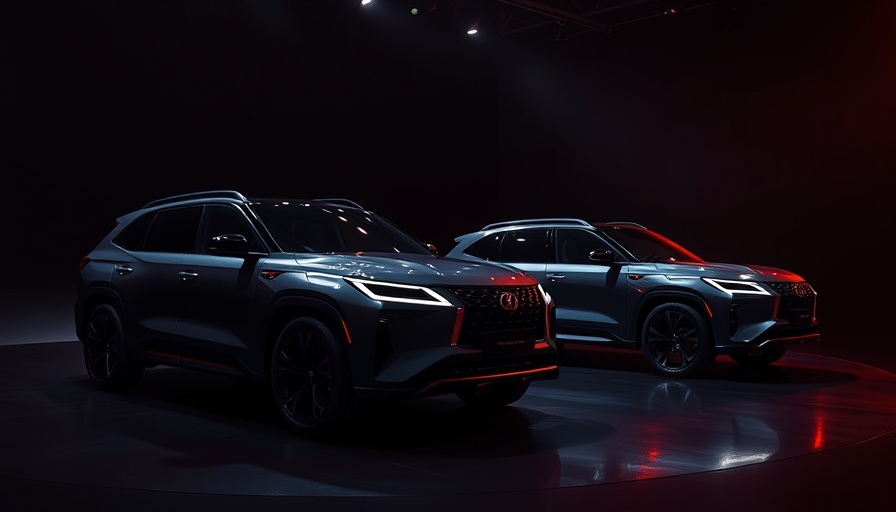
Revolutionizing the Automotive Industry with AI
As artificial intelligence continues to reshape industries, Nvidia's recent announcements at the GTC conference mark a significant step forward for automotive innovation. Chief Executive Jensen Huang unveiled new AI chips, partnered with General Motors (GM), and detailed initiatives aimed at enhancing next-generation vehicles and their manufacturing processes. This collaboration is set to redefine how cars are produced, highlighting the intersection of technology and transportation.
The Power of AI Chips and Collaboration
Nvidia is preparing to release its Blackwell Ultra chips later this year, with plans for the Vera Rubin chips to follow in 2026. These powerful processors are engineered to handle complex AI tasks, accelerating developments in next-gen automotive technologies. The partnership with GM will leverage these innovations, focusing on creating custom AI systems designed for optimizing factory operations and enhancing the user experience in vehicles. The initiative aims to seamlessly merge human ingenuity with advanced technology, promising to unlock new levels of automotive innovation.
Nvidia and GM: A Comprehensive Strategy
The strategic alliance between Nvidia and GM centers around the application of AI in automotive manufacturing and vehicle software development. General Motors will utilize Nvidia's Omniverse platform for digital twin technology, enabling virtual simulations that can minimize downtime and improve production efficiency. By implementing these AI-driven systems, GM anticipates significant enhancements in safety features and performance of advanced driver-assistance systems through the use of Nvidia's DRIVE AGX platform.
Impact on Manufacturing and Workforce
This collaboration is not just about the technology; it also has broader implications for the workforce. Mary Barra, CEO of GM, states, "AI not only optimizes manufacturing processes and accelerates virtual testing but also helps us build smarter vehicles while empowering our workforce to focus on craftsmanship." This approach signifies a shift towards a more collaborative relationship between humans and machines, where AI acts as an enabler rather than a replacement.
Future Trends in AI and the Automotive Sector
As AI continues to infiltrate various sectors, its potential impact in the automotive industry can hardly be overstated. Future predictions suggest that the integration of AI will result in fully autonomous vehicles and more adaptive manufacturing processes. Companies like Nvidia are leading this charge, but they are not alone. A growing number of automakers, including BMW and Mercedes-Benz, are also exploring AI applications, indicating a broader trend toward intelligent vehicle solutions.
Broader Implications for AI in Society
The ramifications of AI's integration into manufacturing extend beyond the automotive industry. As businesses in various sectors adopt similar technologies, society could see enhanced efficiency, safety improvements, and new job opportunities that require advanced skills. The shift towards smart manufacturing could lead to the creation of roles focused on managing and maintaining AI systems, thereby reshaping workforce skill requirements.
Conclusion: Staying Informed in an Evolving Landscape
The collaboration between Nvidia and GM signifies a pivotal moment in the evolution of automotive technology. As AI continues to evolve, those interested in the trajectory of technology and its societal effects should remain vigilant. Emerging trends suggest we are at the forefront of a new era where cars are not only smarter but also more efficient in production. AI enthusiasts are encouraged to stay informed and engaged with this rapidly changing landscape by exploring further developments and implications of AI in various industries.
 Add Row
Add Row  Add
Add 




 Add Row
Add Row  Add
Add 

Write A Comment